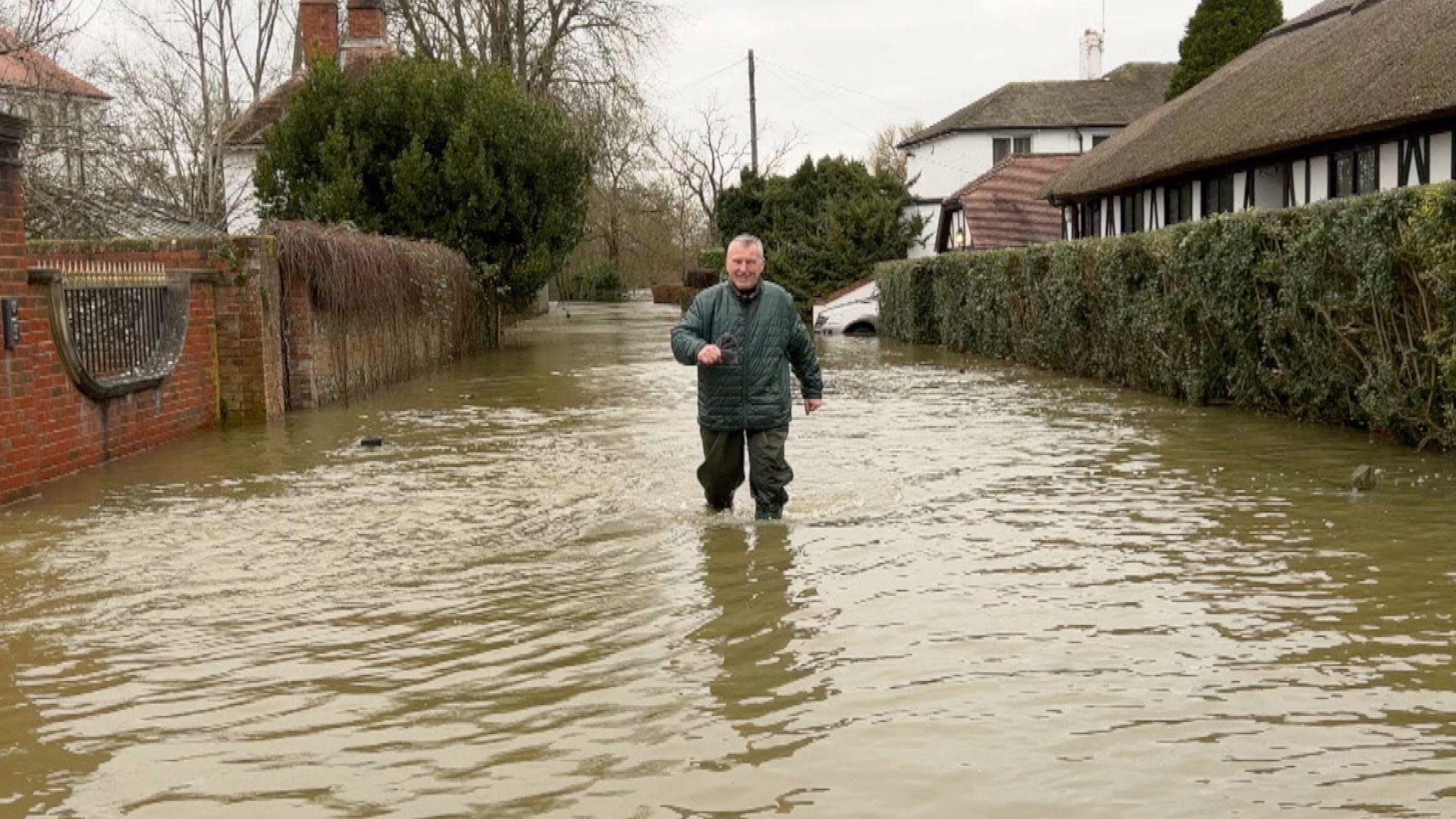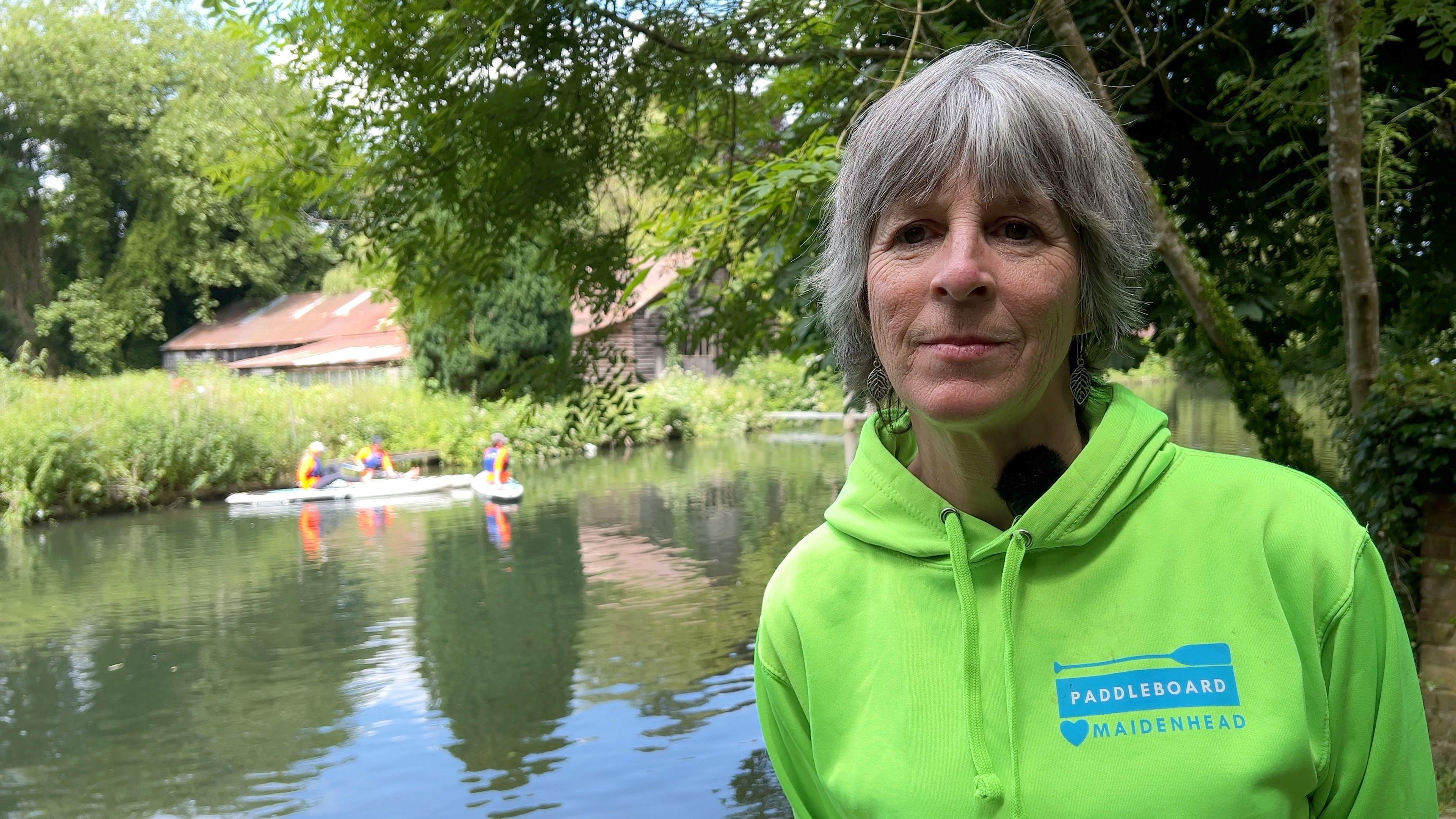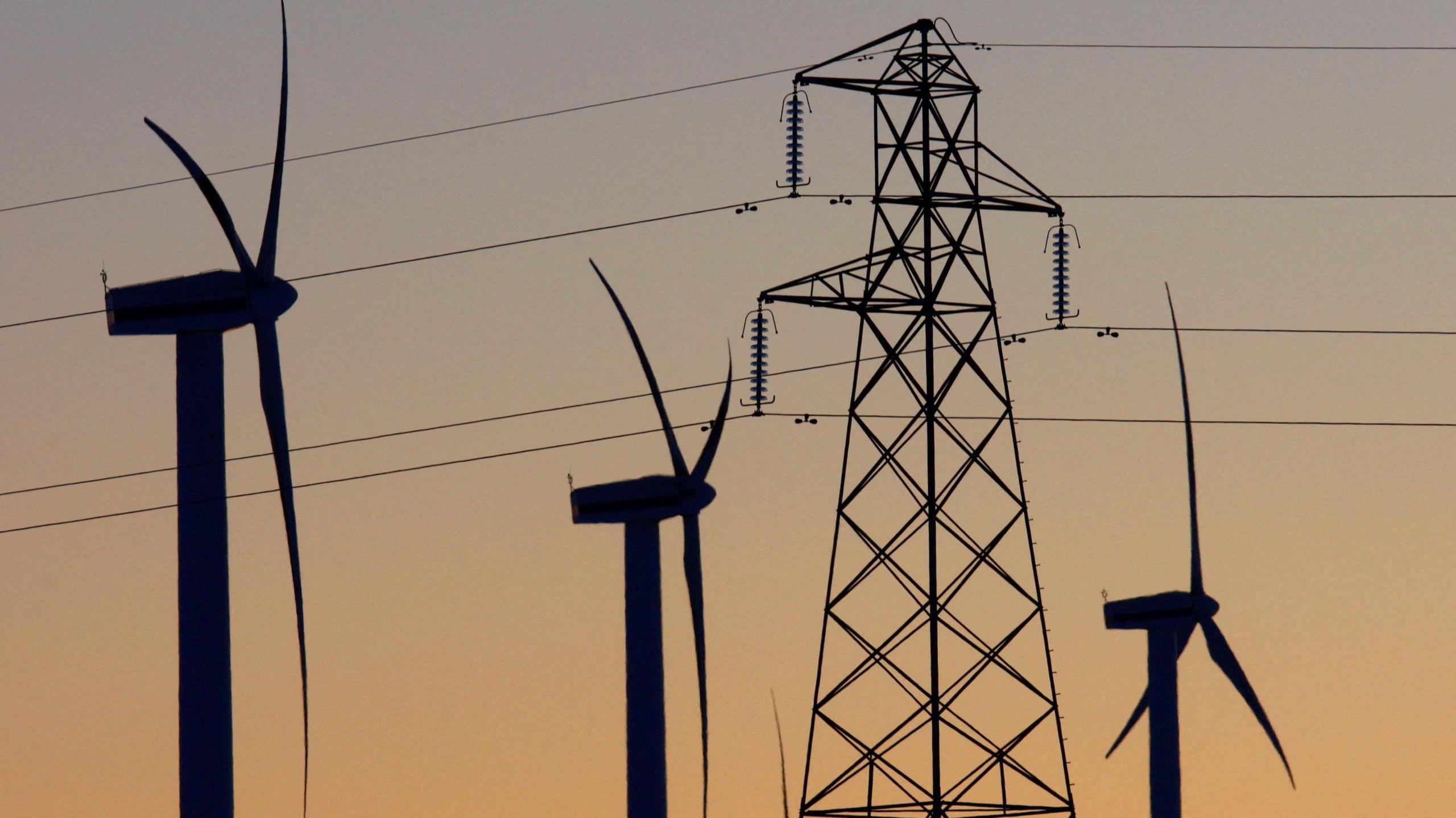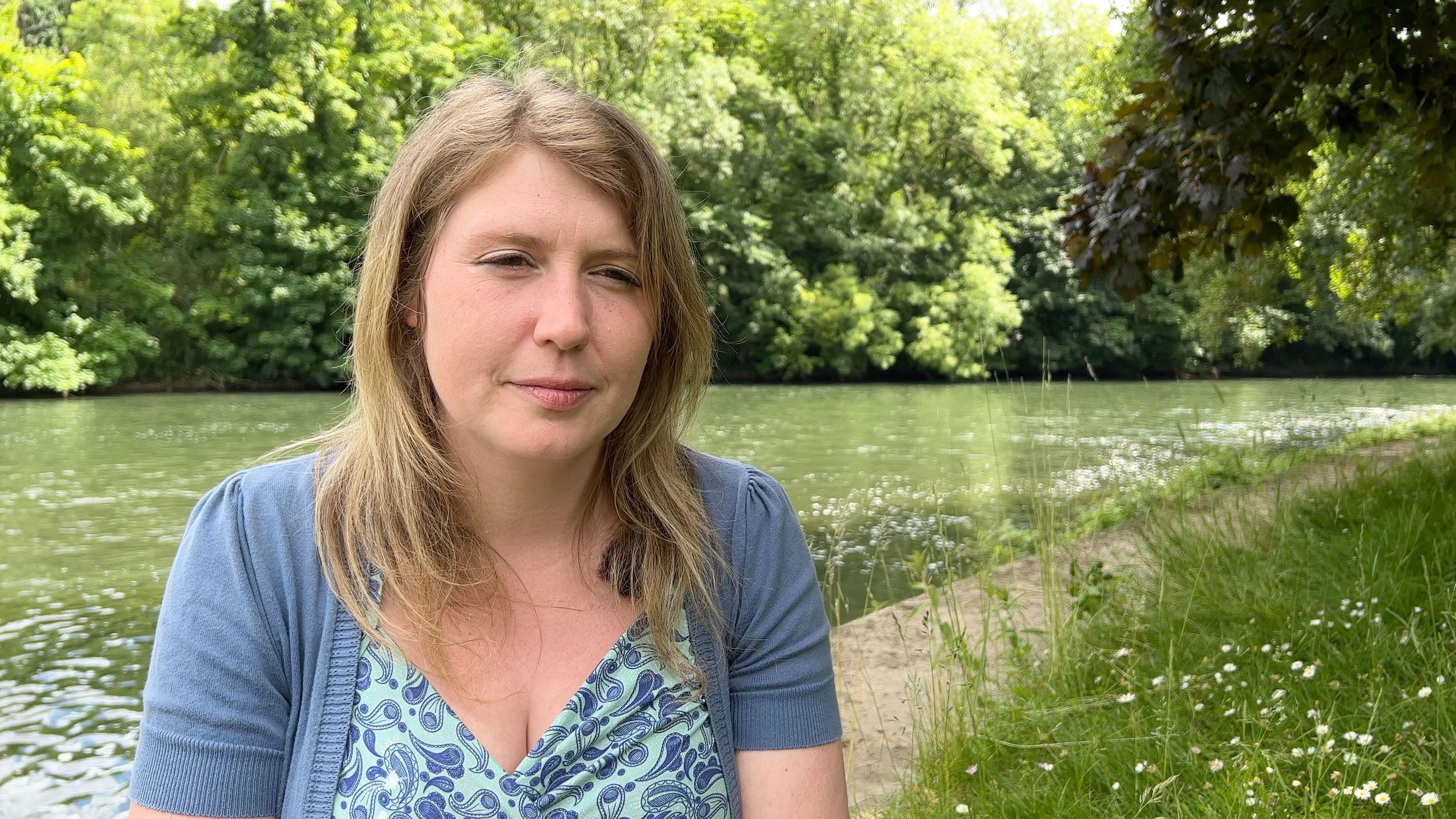Voters want parties to act on climate change

Voters in the region have told the BBC they are worried about flooding
- Published
As the politicians continue their election campaigning, we are focussing on the issues that matter most to you.
More than 60 people have contacted us from Berkshire via the BBC’s Your Voice, Your Vote initiative.
Time and again people across the region have raised concerns about the environment and the "climate crisis".

Paddle-board school owner Tara Crist said her business has been hit by climate change
For eight months over the end of last year and the first half of this, Tara Crist was unable to take pupils at her paddle-boarding school on to the River Thames in Berkshire.
Wet weather and a series of storms left water levels too high and running too fast.
"We have this continuous unstable weather and we know that that's due to the fact we have polluted our planet," she said. "It does affect us, it affects every one of us."
One consequence, she added, was water companies dumping sewage into rivers, "because even they can't cope with the amount of rainfall".

Use of renewables is up, but the UK is still behind expectations of reducing people's carbon footprint
Britain has come "a long, long way" in reducing the CO2 generated meeting our energy needs, according to Dr Sam Mudie of the University of Reading.
But she says there is still more work to be done.
She said: "Eighty percent of people support better climate change policies, but if it was up to them and their own wallets to shell out the money, a lot of people don't do that.
"They need the incentives, they need the nudge to make the behaviour changes that are required for the next 10 to 20 years, to get us back on to the carbon reduction targets that we've legally made."
But she warned that trying to reduce changes to the climate by acting now would be a lot less expensive than mitigating against their impact in areas like the Thames Valley, which are already at risk of flooding.

Dr Sam Mudie says incentives are needed to get individuals to lower their carbon footprint
What the parties say:
Labour publish their manifesto this week but have already promised a "Green Prosperity Plan" which includes setting up Great British Energy to drive the move to renewables
The Conservatives say under them Britain became the first major economy to halve emissions and will continue to meet targets without "clobbering" households
The Liberal Democrats promise to up electricity generation from renewables to 80% by 2030 and reach net zero on greenhouse gases in 2045 - five years ahead of the current target
Green Party policy is to cancel recent gas and oil licences and bring in a carbon tax on fossil fuel imports and home production while boosting wind and solar power
Reform have previously said the drive for net zero is damaging livelihoods and the economy. They say it is better to adapt to warming rather than "pretending" it can be stopped

Laws are needed if firms do not act voluntarily to limit climate change, says Tara Crist
Back on her paddle-board, Tara Crist said she still does not know who she will vote for.
Whoever she chooses, she says: "I want them to say the climate emergency is the most important thing."
The next government must ask industries from agriculture to manufacturing to look at what they can do to mitigate against climate change.
"If they don't go for that," she adds, "then (government) must make it the law that we change how we treat our planet."